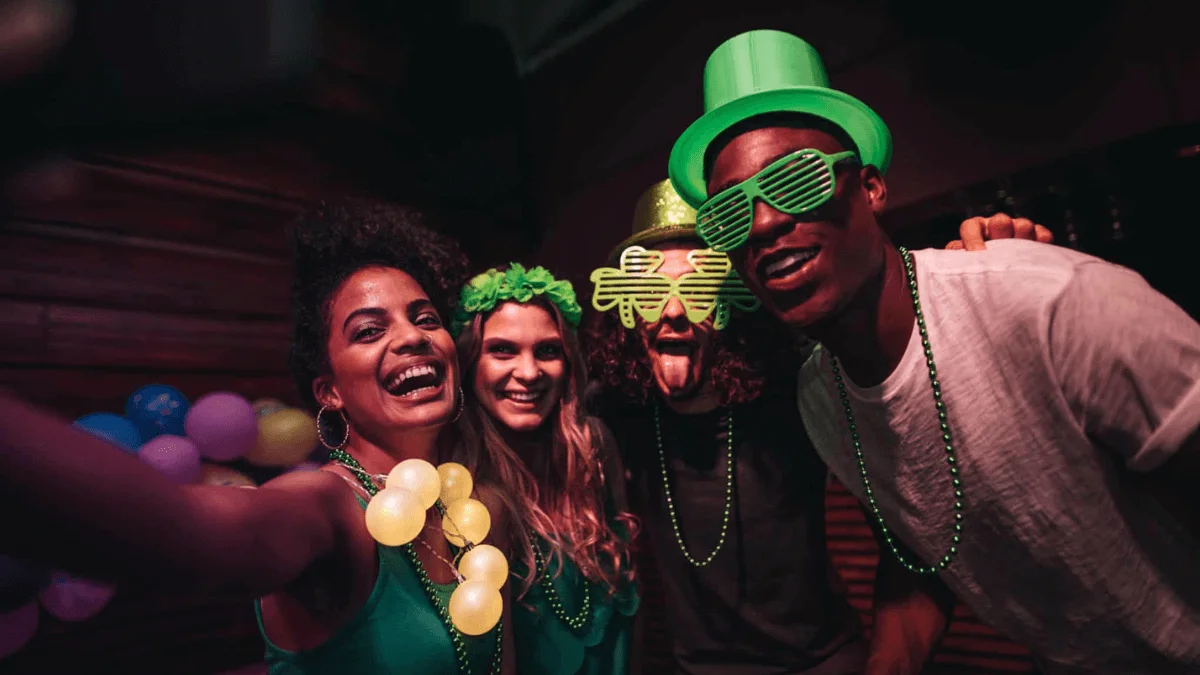St. Patrick’s Day, a cultural and religious celebration held on the 17th of March, the traditional death date of Saint Patrick, the foremost patron saint of Ireland, is a holiday that has transcended geographical and racial boundaries. While it originated in Ireland, the holiday is now celebrated worldwide, from the United States to Japan, by people of all races and ethnicities. But one question that often arises is, “Do Black people celebrate St. Patrick’s Day?” This blog post aims to answer this question and shed light on the universal appeal of St. Patrick’s Day.
The Origins of St. Patrick’s Day
St. Patrick’s Day has its roots in Ireland, where it began as a religious feast day for St. Patrick, who is credited with bringing Christianity to Ireland. Over time, the holiday has evolved into a global celebration of Irish culture, marked by parades, the wearing of green attire, public feasts, and the lifting of Lenten restrictions on eating and drinking.
St. Patrick’s Day Celebrations Around the World
St. Patrick’s Day is celebrated in more countries than any other national festival. In the United States, St. Patrick’s Day parades are held in many cities, with the largest celebrations taking place in Boston, New York, and Chicago. In Japan, the “I Love Ireland” festival is held in Tokyo, and in Argentina, the streets of Buenos Aires are filled with dancers and musicians playing traditional Irish music.

Do Black People Celebrate St. Patrick’s Day?
The beauty of St. Patrick’s Day lies in its inclusivity.
It is not just an Irish holiday but a global celebration that everyone can participate in, regardless of their race or ethnicity. Yes, Black people do celebrate St. Patrick’s Day.
In cities across the United States and around the world, you’ll find people of all backgrounds, including Black people, participating in St. Patrick’s Day parades, wearing green, and joining in the public festivities.
Some Examples of Black People Celebrating St. Patrick’s Day?
- The African History Network Show with Michael Imhotep on 910AM Superstation WFDF discussed the topic “St. Patrick’s Day Myths; Why Do Black People Celebrate?”. This suggests that there are indeed Black people who celebrate St. Patrick’s Day and there is a conversation happening around it.
- A post on Reddit discussed the reasons why Black people might choose not to celebrate St. Patrick’s Day. This shows that the topic is being discussed within the Black community.
- A show on BlogTalkRadio discussed whether African Americans should celebrate St. Patrick’s Day. This indicates that the celebration of St. Patrick’s Day by Black people is a topic of interest and debate.
- An article on TODAY mentioned that St. Patrick’s Day has become a universal celebration of ethnic pride and Irish culture. This suggests that people of all races, including Black people, may choose to celebrate the holiday.
These examples show that the celebration of St. Patrick’s Day by Black people varies. Some choose to celebrate the holiday, while others do not. The reasons for these choices are diverse and can be influenced by personal beliefs, understanding of history, or simply personal preference. It’s important to note that St. Patrick’s Day, like any other cultural celebration, can be celebrated by anyone who chooses to participate. It’s a day that has grown beyond its Irish roots to become a global celebration.
The Significance of St. Patrick’s Day in the Black Community
St. Patrick’s Day holds a unique significance in the Black community. As a celebration that transcends racial and ethnic boundaries, it offers an opportunity for everyone, including Black individuals, to partake in the festivities.
In many cities, Black community members actively participate in parades, cultural events, and public gatherings associated with St. Patrick’s Day. The holiday serves as a platform for expressing unity and shared joy, irrespective of one’s cultural background.
However, the level of participation can vary based on personal beliefs, understanding of the holiday’s history, and individual preferences. Ultimately, St. Patrick’s Day in the Black community underscores the universal appeal of this celebration.
Conclusion
St. Patrick’s Day is a testament to the power of cultural exchange and the universal human spirit of celebration. It’s a day that honors Irish heritage while transcending racial and ethnic boundaries.
People of all races and ethnicities, including Black individuals, partake in the festivities, adding to the rich tapestry of this global celebration. This post aimed to shed light on the participation of Black people in St. Patrick’s Day celebrations, highlighting the inclusivity of the holiday.
We encourage everyone to delve deeper into the history and significance of St. Patrick’s Day and to join in the local celebrations, fostering a spirit of unity and shared joy.
FAQS
Yes, Black people do celebrate St. Patrick’s Day. The holiday is celebrated by people of all races and ethnicities. It’s a day of cultural exchange and celebration that transcends racial and ethnic boundaries.
St. Patrick’s Day began as a religious feast day for St. Patrick, who is credited with bringing Christianity to Ireland. It has evolved into a global celebration of Irish culture. Today, it’s a day to celebrate Irish heritage and culture, regardless of one’s own ethnic background.
In the Black community, St. Patrick’s Day is celebrated in various ways, including participation in parades, cultural events, and public gatherings. It’s an opportunity to join in a global celebration and express unity and shared joy.
The reasons for choosing not to celebrate can vary based on personal beliefs, understanding of the holiday’s history, and individual preferences. Like any cultural celebration, the decision to participate is a personal one and can be influenced by a variety of factors.
While St. Patrick’s Day has its roots in Ireland, it is now a global celebration that is enjoyed by people of all races and ethnicities. It’s a testament to the universal human spirit of celebration and the power of cultural exchange.

